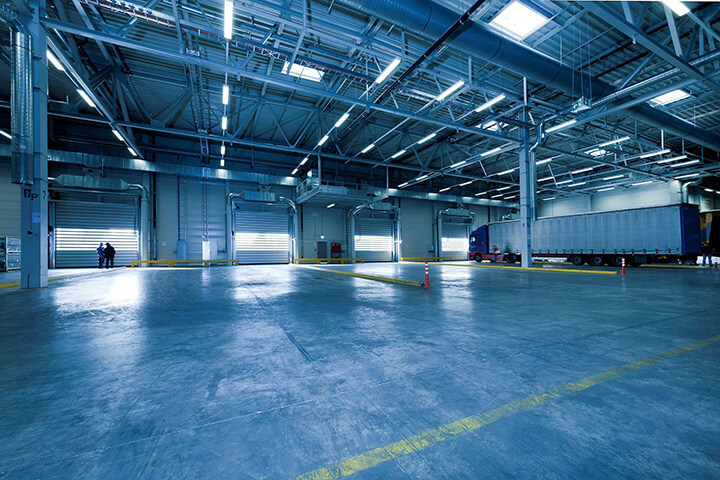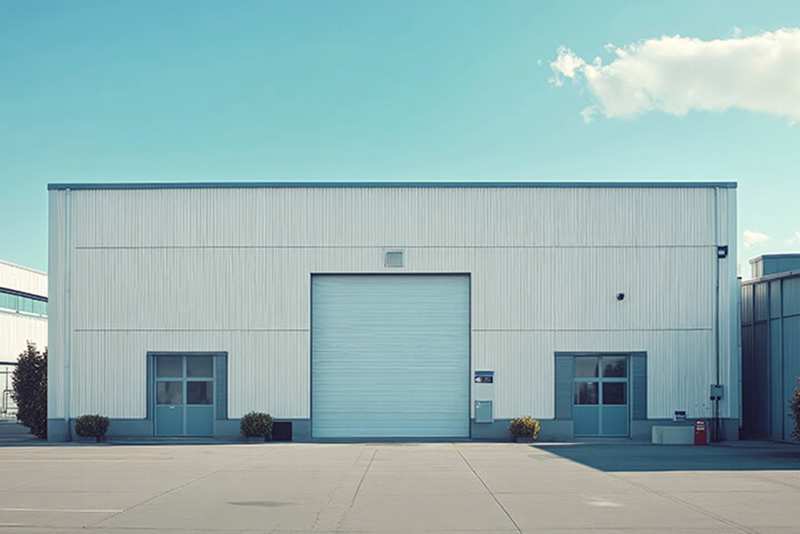Industrial Shed Loan: What You Need to Know About Financing a Shed
Whether you’re expanding your business operations or starting from scratch, an industrial shed can be a valuable investment, providing the space needed for storage, manufacturing, or distribution. Financing an industrial shed requires careful planning and a solid understanding of loan options tailored for industrial real estate. In this guide, we’ll explore the key points about securing a loan for an industrial shed, from eligibility criteria to tips for improving your approval chances.
Understanding Commercial Property Loans
Commercial property loans are a specialised type of financing designed for purchasing or
refinancing commercial properties, such as office buildings, retail spaces, warehouses and
industrial sheds. Unlike residential property loans, these loans are typically offered by
commercial lenders and come with distinct terms and conditions.
When you apply for a commercial property loan, lenders will meticulously assess the property’s value, your creditworthiness, and the loan’s potential for repayment. Factors such as the loan amount, interest rate, and repayment terms are determined based on these evaluations. Commercial property loans can be utilised for various purposes, including acquiring a new property, refinancing an existing loan, or renovating an existing commercial space.
It’s crucial to thoroughly understand the terms and conditions of a commercial property loan before proceeding. This includes being aware of the interest rate, loan term, and repayment schedule. Additionally, borrowers should factor in the fees associated with the loan, such as origination fees and closing costs, to ensure they are fully prepared for the financial commitment.

Why an Industrial Shed Loan?
Industrial sheds are essential assets for businesses in construction, fabrication, welding, warehousing, manufacturing, and logistics. As a valuable asset class in commercial investments, industrial sheds are considered by lenders when assessing loans due to their
potential returns and associated risks. But due to their high cost, most businesses require
financing to secure one. An industrial shed loan helps spread the cost over manageable
installments, allowing your business to conserve cash flow while expanding capacity.
Types of Commercial Property Loans Available for Industrial Sheds
Several loan options can be tailored to the purchase or construction of an industrial shed.
- Commercial Property Loan: This is a common option for financing commercial real estate. It typically offers a higher loan amount and longer repayment terms than standard business loans.
- Equipment Financing: If you’re using the shed to store machinery or specialised equipment, some lenders offer equipment financing, which may cover both the shed and essential business assets within it.
- Business Loan: While not specific to industrial property, a business loan can provide the necessary funds to purchase or build a shed.
- Self-Managed Super Fund (SMSF) Loan: For those with an SMSF, it’s possible to purchase an industrial property as an investment under certain conditions, but this requires professional guidance due to its complexity.
Key Factors Lenders Consider
To qualify for an industrial shed loan, lenders evaluate several factors to assess risk and ensure repayment ability. Most lenders have specific criteria and practices when evaluating industrial shed loan applications:
- Credit History: Lenders will check your business and personal credit scores.
- Cash Flow and Financial Statements: Financial stability is essential, so you’ll need
updated financial statements, including profit and loss statements and cash flow
forecasts. - Business Tenure and Revenue: Lenders prefer businesses with a stable revenue stream and at least two years of operational history.
- Property Valuation: The lender will conduct a valuation of the property or land to determine the amount they’re willing to finance.

Assessing Your Borrowing Capacity
Assessing your borrowing capacity is a fundamental step when applying for a commercial
property loan. Lenders will evaluate your creditworthiness, income, and assets to determine the maximum amount you can borrow. To facilitate this assessment, you’ll need to provide comprehensive financial statements, tax returns, and other relevant documentation.
Several key factors are considered by lenders when assessing your borrowing capacity:
- Credit Score and History: A strong credit score and a clean credit history can significantly enhance your borrowing potential.
- Income and Cash Flow: Demonstrating a stable and sufficient income stream is
essential for proving your ability to repay the loan. - Assets and Liabilities: Lenders will review your overall financial health, including your assets and existing liabilities.
- Property Value and Rental Income Potential: The value of the commercial property
and its potential to generate rental income are critical considerations. - Interest Rate and Repayment Terms: The loan’s interest rate and repayment terms will also impact your borrowing capacity.
Having a clear understanding of your financial situation and the property’s income potential is vital before applying for a commercial property loan. This preparation will help you determine how much you can borrow and ensure that you can comfortably manage the loan repayments.
Tips for Improving your chances of Shed Finance Approval
Getting approved for an industrial shed loan can be straightforward if you take a few proactive steps:
- Clean Up Your Credit: Ensure any outstanding debts are addressed to present a strong credit profile.
- Prepare a Detailed Business Plan: Highlight how the shed will benefit your business, including revenue projections. This gives lenders confidence in your ability to repay the loan.
- Show Steady Cash Flow: Providing financial documents showing stable or growing cash flow can reassure lenders of your repayment capability.
- Consider a Higher Deposit: A larger deposit reduces the lender’s risk and can increase your chances of approval while potentially lowering interest rates.
- Consult a Mortgage Broker: A specialist mortgage broker can guide you through the complex commercial loan application process, leveraging their relationships with lenders to secure advantageous terms and provide insights into various lenders’ criteria.
Costs to Consider Beyond the Loan: Interest Rates and More
It’s crucial to factor in additional costs that come with purchasing an industrial shed. When considering a new shed, it’s important to budget for the costs associated with purchasing, including customisation options and potential financing solutions that can make the investment more manageable:
- Stamp Duty and Legal Fees: Stamp duty can be a significant expense, depending on your location.
- Property and Building Insurance: Essential to protect your investment from unforeseen events.
- Maintenance and Utilities: Regular maintenance and utility costs should be included in your budget to avoid unexpected expenses.
- Taxes: Be aware of tax implications, such as capital gains or property taxes, which may apply to your investment.

Benefits of Using a Finance Broker for Commercial Property
Engaging a finance broker can be highly advantageous when navigating the complexities of securing a loan for an industrial shed. A finance broker acts as an intermediary, working with multiple lenders to identify the best loan options tailored to your needs. They can streamline the loan application process, negotiate with lenders on your behalf, and help you secure the most competitive interest rates.
The benefits of using a finance broker for commercial property include:
- Access to Multiple Lenders and Loan Options: Brokers have connections with
various lenders, providing you with a broader range of loan options. - Expert Knowledge of the Commercial Lending Market: Their expertise in commercial lending ensures you receive informed advice and guidance.
- Negotiation Power: Brokers can leverage their relationships with lenders to negotiate better terms and interest rates for you.
- Time-Saving and Convenience: A broker handles much of the legwork, saving you
time and effort. - Potential for Better Interest Rates and Terms: With their industry knowledge and
negotiation skills, brokers can often secure more favorable loan conditions.
When selecting a finance broker, prioritise those with experience in commercial lending and a solid reputation in the industry. A reputable broker will provide a range of loan options and work diligently to find the best financing solution for your commercial property needs while protecting your credit score.

Why Choose Flow Financial Services for Your Industrial Shed Loan?
At Flow Financial Services, we understand the unique financial needs of businesses. Our
experienced team works closely with you to find the right financing solution tailored for your requirements. We can help you get your dream shed by providing tailored financing solutions that consider your personal preferences and needs. From assessing eligibility to navigating the paperwork, we provide end-to-end support to make the loan application process seamless.
Our commitment to transparency and customer-first service ensures you’ll receive clear, honest guidance every step of the way. Contact Flow Financial Services today to learn more about our loan options.

